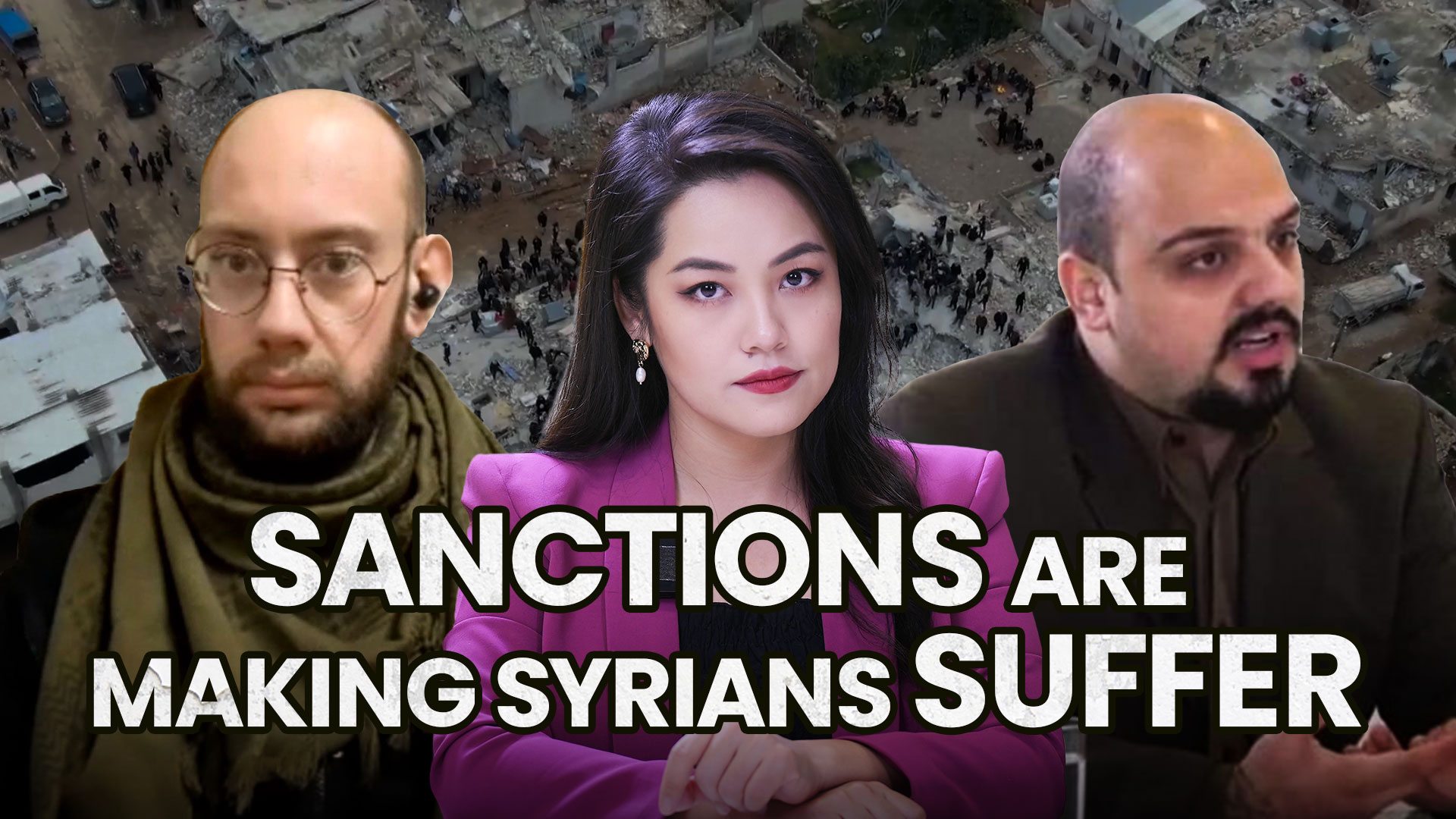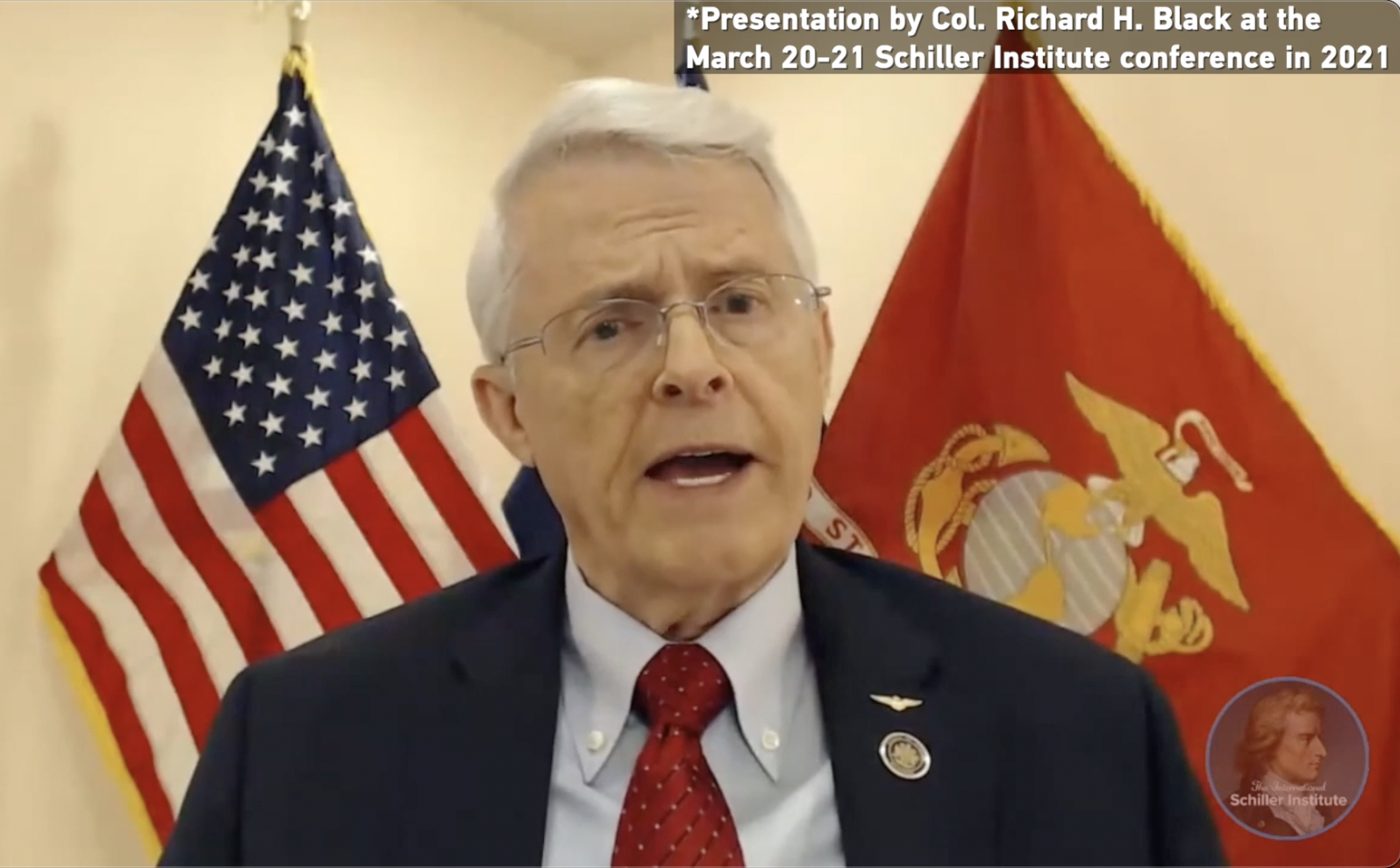13:09

Also hit by the devastating earthquake that hit Türkiye, the case for Syria is complicated since the country has long been pushed to a dire situation because of the everlasting Western sanctions. The natural disaster is making Syrian people's life even harder. Yet less assistance could be sent to Syria.
"What we are facing now in Syria is not because of the earthquake itself, our real problem is the sanctions," said Antoine Makdis, an Aleppo-based photographer, who had traveled through different cities in Syria to examine earthquake damage in the country. In an interview with CGTN, he shared his concern that the destruction in rural regions may further push the country to a more devastating situation, and kids from impoverished families could potentially be used by terrorist groups now that their schools have all been wiped out by earthquakes.
After being repeatedly requested by the international community, the U.S. announced a 180-day exemption to Syria sanctions for disaster aid on February 9. Yet, Steven Sahiounie, a Syrian journalist from Latakia, believes this is nothing more than a political game and will not help solve the struggles Syrian people are facing.
"No country on the planet earth can build houses and buildings for 5.5 million Syrian people who are homeless," said Sahiounie in an interview with CGTN.
Used to be a self-sufficient agricultural and industrial country, Syria now is in dire need of food, fuel, electricity, clean water, and materials for building infrastructure due to the sanctions. "Even they put sanctions on us, if they leave us the oil, gas and wheat in the east of Syria, if the Americans leave the east of Syria, and stop stealing our oil, gas and wheat, Syria can build itself," said Sahiounie. "But now, the Americans are stealing our money."
A report done by The Cradle, an online magazine covering the geopolitics of West Asia, shows that U.S. troops have been smuggling oils from the Syrian city of Raqqah to their bases in Iraq.
The lack of fuel has made Syrians' daily life much harder, as that put a cap on how much vehicles and electricity they could use. Fewer excavators and ambulances can be used to pull people under the rubble or in urgent need of medical care.
"I used to walk for hours to find baby milk for my own baby, we used to have 24 hours of electricity before the war," said Sahiounie. "Now there are Syrian students studying on candles." The electricity for Sahioune's house went off even during the interview as it hit his daily limit.
In a presentation in 2021 revealing how the White House planned to attack Syria long before its civil war and allied and supported terrorist groups to destabilize Syria, the former Head of the Criminal Law Division at the Pentagon, and former Virginia Senator, said: "Sanctions do nothing, but attack the innocent, the poor, the helpless. They are the most cruel and most barbaric type of warfare that we can wage. We steal food, fuel, and medicine from the poor. We blockade supplies for rebuilding so that Syrian men must fight for a living or starve."

Colonel Richard Black gives a presentation for the Schiller Institute conference in 2021, revealing how the U.S. created the Syrian crisis. /CGTN
Colonel Richard Black gives a presentation for the Schiller Institute conference in 2021, revealing how the U.S. created the Syrian crisis. /CGTN
"Now, the legacy of the nation has been stolen by the United States, leaving Syrians to freeze to death in the winter," said Col. Black, also in his speech in 2021.
Yet sadly, it's still true in 2023.